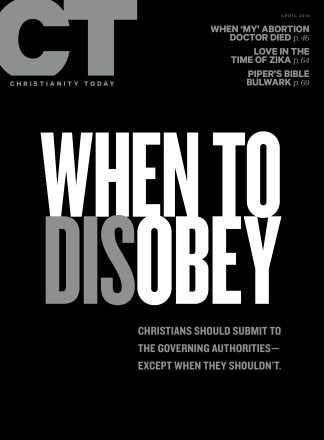The image of the nuclear family has always been an ambiguous one for me. Of course it’s meant to convey a picture of a centered family, anchored by a mom and a dad, with children orbiting around them as satellites, together serving as one of the basic units of society—an “atomic unit,” if you will. But having been raised during the denouement of the cold war and shaped by movies like Red Dawn, for me the notion of a “nuclear” family also carried connotations of a bomb shelter or concrete bunker, a fortress to protect us from the threats of a menacing world.
The metaphor is stark but not entirely off base. We rightly have a sense of caution when it comes to the influence of the world on our families, especially on our children. Indeed, it’s a biblical admonition: we are both incubators and defenders of our children’s hearts and minds, stewards of their imaginations, responsible for their instruction. It’s only natural that we should be their defenders, on guard like sentinels watching in the distance for oncoming threats.
But what if we’re missing the real threats? What if we’re constructing defenses against the intellectual blasts of ideas and messages from the world but not insulating against the sort of toxic radiation that can seep through our intellectual defenses? Every parenting strategy assumes something about the nature of human beings. We tend to treat our children as intellectual receptacles, veritable brains-on-a-stick, and we parent and protect them accordingly. We try to foster their faith by providing them with biblical knowledge and then gradually equipping them to also discern the false teachings the world will throw at them.
But what does it look like to parent lovers? What does it look like to curate a household as a formative space to direct our desires? How can a home be a place to (re)calibrate our hearts?
Every household has an unspoken “vibe,” the constant background noise generated by our routines and rhythms. That background noise is a kind of imaginative wallpaper that influences how we imagine the world, and it can either be a melody that reinforces God’s desires for his creation, or it can (often unintentionally) be a background tune that is dissonant with the Lord’s song. We need to tune our homes, and thus our hearts, to sing his grace. You could have Bible “inputs” every day and yet still have a household whose frantic rhythms are humming along with the consumerist myth of production and consumption. You might have Bible verses on the wall in every room, and yet the unspoken rituals reinforce self-centeredness rather than sacrifice.
Each of us should assess the routines our household takes for granted, precisely because those are the routines we don’t usually think about—and hence, whose formative power we don’t recognize. We think of them as “things we do” and might not recognize that they’re doing something to us.
James K. A. Smith, You Are What You Love, Brazos Press, a division of Baker Publishing Group, © 2016. Used by permission of the publisher. bakerpublishinggroup.com.











